#MentalHealthAwareness - Rambling My Way Toward Safe Spaces
#MentalHealthAwareness - Traumatic Children Make for Traumatic Teachers so Take Care of Both
Mental Health Monday #21: Therapy for Black girls, depressed rappers, manhood lessons, etc.
Dear Homeslice,
Congrats on making it through another week in this hateration-filled dancerie. Welcome to another Monday and to round of Mental Health Monday, your weekly dose of stories, resources, and motivation for your everyday life. On last week's party, we had some goodness from rapper Vic Mensa about how social media affected his mental wellness and why we have to open up about our struggles, how racial trauma affects our collective mental health, podcasts by therapists of color, and much more. Check it out.
If you're not listening to the Therapy for Black Girls podcast, with psychologist Dr. Joy Harden Bradford, there's still time to fix your life. The show is a weekly conversation "about all things mental health, personal development, and all the small decisions we can make to become the best possible versions of ourselves." Because she's awesome, Dr. Joy has a dope directory of, you guessed it, therapists for Black girls. On her most recent episode, she and therapist Kiaundra Jackson, LMFT, discussed healthy relationships and you're in luck because you can listen to it right here:
THIS WEEK'S GOODNESS:
In honor of Minority Mental Health Awareness Month, now's a good time to take a look at Dr. Jessica Dere's TEDx talk about how considering cultural factors (traditions, family dynamics, immigration, religion, etc.) when approaching one's mental health. A "one size fits all" approach to wellness overlooks so many important elements of one's situation and personality.
"Meet 3 20-Somethings Making It Easier For Black Millennials To Talk About Depression" by Zahara Hill [HuffPo]
So contrary to the old folks’ adage, black people living with depression aren’t doing so because they’ve been afforded the luxury of having “white people problems.”
Thankfully, a number of creative black 20-somethings with mental illnesses are addressing the stigma that surrounds it. But three, in particular, have stood out for the unique ways they’re going about furthering the mental health dialogue.
"Rap’s Biggest Stars Are Depressed & So Are Their Fans" by Morgan Olsen [DJ Booth]
We sing along at the top of our lungs to Lil Uzi Vert's hit single “XO Tour Llif3,” chanting, “She said I’m insane yeah, I might blow my brains out. Xanny for the pain yeah, please Xanny make it go away.” This song is all over the radio. Yet, we gloss over the fact that Uzi is quite possibly hanging on for dear life, taking Xanax to numb the pain while thoughts of taking his own life run through his head.
"How My Father Taught Me to Be a Man" by Clay Cane [Advocate]
I became seriously introverted. I was afraid to speak or move too suddenly and was in a state of constant nervousness. There was no space to be myself. I was labeled a “nervous child,” but no one understood that my father kept me on a choking, hypermasculine leash. I’d practice masculinity in the mirror. Trying to move my hands the “right” way, pacing my steps so I wasn’t “swishing”; studying masculinity was my survival technique to endure the mental abuse from my father.
"Is there institutional racism in mental health care?" by Isaac Fanin [BBC]
When Eche Egbuonu, who has bipolar disorder, was sectioned under the Mental Health Act, he should have been taken to a safe environment - usually a hospital - for a medical assessment.
Instead, he was taken straight to a police station.
"“Strong as Glass” Erasing the Stigma of Mental Illness & Black women" by Abesi Manyando [Think Pynk]
When asked to imagine mental health in the black community, many people could probably envision a brick wall between themselves and the person they are trying to confide in. It’s a widely known stereotype that topics like depression and suicide are “white people things” or that mental illnesses will just pass on like a common cold. As Black women we’ve been taught that we have super powers and strength unknown to regular human beings.
"You’re Not White… And Other Reasons Black People Don’t Go to Therapy" by Esther Boykin [Psyched]
But this particular friend has always been my partner in the unspoken battle to win over our little pocket of the black community to the benefits of therapy. So when my friend’s daughter shared that she had visited a therapist on campus I was thrilled—not because of the pain this young woman was experiencing, but because she felt comfortable talking openly about it with her parents and the rest of us in the room. My heart leapt with pride and hope about how far we had come in our attitudes toward mental health.
But then my friend, my partner in expanding our community’s view of mental health, said, “Why? You’re not white. And you don’t have any real problems. What do you have to go to therapy for? These suburban kids are so soft… you don’t know what problems are.
RESOURCES
Depression, PTSD, & Other Mental Health Conditions in the Workplace: Your Legal Rights [EEOC]
Have a mental health story, video, resource, or event we need to know about? Don't be stingy. Send it our way!
Okay, so here's what happened at #GetSomeJoy: A Blackstravaganza for Mental Health Awareness
Mental Health Monday #16: Being attracted to your therapist, Black boy trauma, self-love, etc.
50 Cent, Chris Lighty, and LL Cool J (image by Johnny Nunez/Wire Image)
Oh, hey. Welcome to another round of Mental Health Monday, your weekly dose of stories, resources, and motivation for your everyday life. On the last roundup, we had an update on British R&B singer's journey with depression, a documentary on the mental health of students of color by a Howard University student, mental illness on television, and a NYC psychiatrist that prescribes books rather than pills. Good times. Go have a gander.
If you haven't already, check out Mogul: The Life & Death of Chris Lighty, the new Spotify series about the life and death of the beloved industry executive who took his own life in 2012. It's brought to you by Combat Jack's Reggie Ossé. Find out more about it here.
If you're in New York, come on out and join Alex at the Schomburg Center for Research in Black Culture this Wednesday, May 31 at #GetSomeJoy: A Blackstavaganza for Mental Health Awareness, featuring Hari Ziyad, Jayson P. Smith, Alise Leslie, Andrew Shade, Danielle Belton, and Darnell Lamont Walker. Get tickets and more information here.
THIS WEEK'S GOODNESS
'Mogul': Even In Death, Chris Lighty Takes Hip-Hop To Another Level
Black Boys Coping With The Trauma Of Watching Black People Die by Dr. Marcus Bright [HuffPost]
There is a secret depression that is rooted in economics that many Black men battle. It is hidden underneath an assortment of layers including an exaggerated bravado, drug and alcohol abuse, misdirected anger, and other forms of destructive behavior. Fantastical illusions are also a tool that is deployed to cope with the humbling realities of an often marginalized existence.
Long Beach approves its first 24-hour psychiatric urgent-care center by Courtney Tompkins [Long Beach Press Telegram]
Long Beach has approved the city’s first ’round-the-clock psychiatric urgent care center, a facility advocates say will provide necessary social services and offer an alternative to incarceration or treatment in hospital emergency rooms where waits can be long and beds are often too few.
Stars Behavioral Health Group, headquartered in Long Beach, will run the operation on contract with the Los Angeles County Department of Mental Health, which operates five similar facilities across the county and plans to open four more this year.
We All F*ck Up: The Importance of Loving Yourself Even When You Disappoint Yourself by Vanessa Lewis [The Body Is Not An Apology]
"Look, the act of self love ain’t never been no easy thing — especially when you’re experiencing copious amounts of scarcity, shame, disenfranchisement, or loss. Otherwise, there wouldn’t be a 10 billion dollar skin-lightening industry in countries where the world’s darkest people reside. Forty-two percent of voting women wouldn’t have voted for Donald Trump (an anti-choice, anti-union, anti-poor, pro-war, sexual harassment enthusiast).
And I, processing yet another anguishing break-up with someone who’s made it overtly and painfully clear that they no longer want anything to do with me, would be focusing more on healing, pursuing my goals, and moving through grief, rather than spending my days staring at his Facebook page, miserably pining for his affection and attention, and desperately reaching out to him even when I know better."
You're Attracted to Your Therapist: What Now? by Ruben Castaneda [US News]
What should you do if you’re attracted to your therapist? Suppose you hit it off with him or her and start believing you can be buddies outside the therapeutic setting? Or become overly emotionally dependent on your psychotherapist or psychiatrist?
"I hope something positive will come from dad's suicide" [Lionheart]
There can be nothing more heartbreaking to know that someone you loved was so ill and unhappy that they felt their only option was to take their own life.
But that is what Rob O’Halloran and his sister Lucy must live with: their father John O’Halloran, a successful chartered surveyor and former company MD, took his own life in 2015 after a long struggle with depression.
Demand for youth mental health services is exploding. How universities and business are scrambling to react by David Cribb [The Star]
At age 18, Kimberly could no longer come up with a reason to live.
The Toronto university student locked the door to her parents’ garage, stepped onto a stool in the middle of the room and looped an electrical cord around her neck.
“It’s something I couldn’t explain,” recalls Kimberly, who asked that her last name not be published. “I didn’t understand what was going on in my head . . . You want to give up.”
How to deal with your mental health when the world feels like a scary place [Metro UK]
Having anxiety and obsessive thoughts often boils down to a simple misunderstanding of the level of danger in a situation.
My brain tells me that leaving switches turned on will result in the house burning down, that if I don’t go and check the door seven times before bed I’ll get burgled, and – in the worst times – that if I go outside I’ll get murdered.
Get your tickets HERE to #GetSomeJoy HERE.
Are you a Black mental health professional? Do you know one? Alex is building a hub for Black wellness. Learn how you can be down.
Do you have a mental health-related story, video, event, or other content we should know about? Hit us up.
Join us at #GetSomeJoy: A Blackstravaganza for Mental Health Awareness (NYC)
To close out Mental Health Awareness month, Alex is hosting a night of merriment, art, readings by poets and storytellers, and candid conversations to increase awareness and destroy the stigmas around mental and emotional wellness.
When: Wednesday, May 31, 2017. Doors: 7PM. Event: 8:20PM
Where: Schomburg Center for Research in Black Culture (Langston Hughes Auditorium)
515 Malcolm X Blvd (at W 135th St)
At #GetSomeJoy, Alexander will share new writings inspired by his journey with depression and anxiety, and you'll hear greatness from Hari Ziyad, Jayson P. Smith, and Alise Leslie. Then, Darnell Lamont Walker, Danielle Belton, and Andrew Shade will join Alexander to get really real about self-care, therapy, healing, and how our work and mental wellness affect one another. #GetSomeJoy ends with a candid conversation about mental illness, stress, and trauma with a special guest. Oh, and there will be a squad of massage therapists on hand to work some magic and community organizations on hand to provide resources. It's gonna be a beautiful night.
FEATURING READINGS BY:
HARI ZIYAD
Hari Ziyad is an artist, writer and the editor-in-chief of the literary and media publication RaceBaitR. They received their BFA from New York University, where they concentrated on Film and Television and Psychology.
Their work is informed by their passion for storytelling and wrestling with identity as a Black, non-binary child of Muslim and Hindu parents while growing up in Cleveland, OH.
Their work has been featured on Gawker, Out, Ebony, Mic, The Guardian, Colorlines, Paste Magazine, Black Girl Dangerous, The Feminist Wire, and in the peer-reviewed journal Critical Ethnic Studies (upcoming 2017). They are also Deputy Editor for Black Youth Project, an Assistant Editor for Vinyl Poetry & Prose, and writer for AFROPUNK.
ALISE LESLIE
Alise Leslie is a poet, author, blogger, spoken-word artist, and mental health advocate currently residing in Durham, NC. She writes at the blog, “In My Mental Mind: a black girl’s mental health journey," focusing on mental health issues, particularly for women and men of color, through essays, personal stories, poetry, and music. Her lipstick game is most likely better than yours.
More Alise: In My Mental Mind | Facebook | Twitter
JAYSON P. SMITH
Jayson P. Smith is a writer, curator, & educator. Currently an Emerge-Surface-Be Fellow with The Poetry Project, Jayson lives/works in Brooklyn & at jaysonpsmith.com, where they curate & host the NOMAD Reading Series.
DISCUSSION: "SELF-CARE, THERAPY, AND WELLNESS FOR BLACK FOLKS" WITH:
DARNELL LAMONT WALKER
Darnell Lamont Walker, above all things, is an artist. As a writer, photographer, painter, and filmmaker, Darnell understands his duty is to reflect the times, whatever that may mean for the space he’s occupying.
As a playwright, Darnell has produced several plays, winning numerous awards worldwide, including three Best Drama Awards. As a poet, he serves as a Calalloo fellow, and tours the world, sharing his work. As an author, Darnell has published 5 works.
As a photographer, Darnell has been invited to exhibit his work in many galleries and spaces around the United States, Spain, South Africa, and the UK. He’s also been published to Vogue Italia.
Seeking Asylum, Darnell’s first self-produced and directed documentary, has been screened worldwide in several festivals and film houses. The film explored Black Americans’ desires to escape American tyranny for safer lands. His latest work, Outside The House, puts Black mental health on the forefront, asking “why are we not seeking the help we should be?”
Currently living in a “self-imposed exile” in South Africa, Darnell continues to create are that forces conversation and reflection.
ANDREW SHADE
Andrew Shade has a burning passion that lies in the arts. Originally from Fort Wayne, IN, he resides in the heart of Harlem, helping to lead the way in building a more diverse and knowledgeable audience in the theatre world. He is the Founder & Editorial Director of Broadway Black, a digital platform dedicated to highlighting the achievements and successes of African-American theatre artists on and off the Broadway stage. Broadway Black has taken the theatre industry by storm and has been excelled by the likes of Ben Vereen, Jennifer Hudson, & Misty Copeland just to name a few.
However, Shade feels the greatest achievement has been using his experience and knowledge of the industry to create a community celebrating his own. Recently awarded The Mountaintop Award by Actors Equity Association & BOLDNYC for being a trailblazer. "There is no greater joy than fueling & inspiring those who once thought the theatre was a foreign place to which they were not welcome," he says. He lives the life of the Broadway Black slogan, and shows what can happen "When The Theatre Goes Dark."
DANIELLE BELTON
Born and raised in St. Louis, Mo. on a healthy diet of news programming, pop culture, black history and “snark,” Danielle Belton, daughter of loving “regular folk” and wife of no one, examines the irreverent side of American life.
With two million readers in less than two years, Belton is best known as the editor/writer of the pop culture-meets-politics blog The Black Snob. Belton started the blog in 2007.
Belton is currently Associate Editor for The Root. Previously she was Editor-At-Large for Clutch Magazine Online, and was recently head writer for the late night television show Don’t Sleep hosted by T. J. Holmes on BET.
As an advocate for mental illness, Belton also has blogged about Bipolar Disorder for BP Magazine’s online site. She penned her own profile in BP Magazine summer 2011 and wrote about her battle with mental illness for the January 2012 edition of Essence Magazine.
The Black Snob has earned critical acclaim, appearing in Time Magazine, The New York Times, The Observer (UK), The Daily Beast, Essence Magazine, The Associated Press, The American Prospect, as well as appearing on CNN, MSNBC, NPR, PBS, Good Morning America, HLN, ABC’s Nightline and Al Jazeera English.
GET YOUR GOLDEN TICKET HERE.
If you have a company or brand and would like to discuss getting in front of a diverse audience of creatives, mental health professionals, and community members and connecting with over 150,000 combined social media subscribers (between the host, The Extraordinary Negreos, and event participants) in an engaging way, contact us here or at mr.alexhardy@gmail.com.
CURRENT SPONSORS:
PAST SPONSORS:
ABOUT YOUR HOST:
New York City-based food-lover Alexander Hardy is an essayist, mental health advocate, cultural critic, dancer, lupus survivor, and co-host of The Extraordinary Negroes podcast. He has written for Ebony Magazine, CNN.com, Esquire, Gawker, Courvoisier, The Huffington Post, Saint Heron, and Very Smart Brothas, among other outlets. Before shifting his creative and professional focus to mental health, he founded and worked as director of Panamerican Languages and taught dance and CardioDance classes while living and working in Panama City, Panama. Alexander now teaches creative, essay, and academic writing and spreads awareness as a certified Mental Health First Aid Instructor. When not writing on TheColoredBoy.com or talking about self-care or Janet Jackson, he enjoys cheese grits, power naps, James Baldwin, and rice. Alexander does not believe in snow or Delaware. View Alex's mental health writing and work here. See all of his work here.
Mental Health Monday #15: Laura Mvula's anxiety journey, dementia in NFL players, books as therapy, etc.
Laura Mvula, singer, mental health advocate
Oh, hey. Welcome to another round of Mental Health Monday, your weekly dose of stories, resources, and motivation for your everyday life. On last week's roundup, we featured a new VICELAND series that takes some of your favorite artists to therapy, reflections by Naomi Campbell on the discrimination she received when she sought help with drug abuse challenges, thoughts on how mental health is depicted in the media, and so forth. Have a gander.
If you're in New York, come on out and join Alex at the Schomburg Center for Research in Black Culture on Wednesday, May 31 at #GetSomeJoy: A Blackstavaganza for Mental Health Awareness, featuring Hari Ziyad, Jayson P. Smith, Alise Leslie, Andrew Shade, Danielle Belton, and Darnell Lamont Walker. Get tickets and more information here.
AND: Join us on The Extraordinary Negroes Facebook page for Mental Health Monday, live tonight at 9PM EST. Check out our first
THIS WEEK'S GOODNESS
"This Singer Just Made An Excellent Point About Mental Health Progress" by Kimberly Truong [Refinery29]
If you've ever suffered from anxiety, you'll know how common and easy it can be to get wrapped up in an overwhelming amount of stress over certain things. Anxiety is complex and manifests in many different ways for different people, but it can often involve being unable to put aside a feeling of worry that's triggered by certain situations.
For British singer Laura Mvula, her anxiety disorder is especially high when she's left alone.
"This anxiety thing is something that has dictated my life," she told The Guardian last year.
But now, Mvula is working steadily towards recovery and shared a powerful message about mental health progress on her Instagram. On Wednesday, the singer posted a photo of a London Underground tube station, explaining that she's overcoming her anxieties over traveling alone on the train.
And then Howard student Gabrielle Headly edited and directed documentary on students of color who struggle with their mental health.
"Mental Health Treatment Can Save Lives, But The Right Diagnosis Can Take Years" By Lindsay Holmes,Damon Dahlen,Isabella Carapella [HuffPost]
1,277 days. That’s approximately how long it took Nic Newling to figure out he was dealing with bipolar disorder after first reaching out for help.
"Black Folks and Mental Health: Why Do We Suffer in Silence" by Nia Hamm [HuffPost]
With the exception of African American celebrities or public figures who experience mental trauma, such as Illinois Representative Jesse Jackson Jr., or commit suicide as in the death of hip-hop legend Chris Lighty, mental health remains largely absent from the public discourse in the Black community.
But the statistics are loud and clear. African Americans are 20% more likely to report having serious psychological distress than non-Hispanic Whites, according to the U.S. Department of Health and Human Services Office of Minority Services. Yet young adult African Americans, especially those with higher levels of education, are less likely to seek mental health services than their White counterparts, according to a study published by the American Psychological Association.
"Removing the Stigma Surrounding Mental Health in Blacks" by Elisha Lowe RN, BSN, MBA [Black Enterprise]
“You can be sad today, and tomorrow too. And then you can be happy on Thursday, happy on Friday and then find yourself anxious on Saturday…it’s all OK because life is a journey and there’s no way we can all stay on the same path every single day of our lives forever. So that’s what I want this campaign to do, I want this campaign to highlight the various highs and lows of just being a human and understand that it’s OK either way.”
"Some black college students face hidden mental health crisis" by Beth Galvin [FOX 5 Atlanta]
When Ashanti Hampton of Stone Mountain graduated a year early from her racially-diverse DeKalb County high school -- with a 4.2 average -- Georgia Tech seemed like a perfect fit. Instead, she felt isolated, unable to connect.
"It's very hard. Engineering is hard in itself. But being alone in engineering, and struggling alone, and struggling silently, is even harder," says Hampton. "To be honest, I dealt with a lot of depression here. "
"You definitely have to prove you belong here, a lot," adds Seyi Gvadeagesin a third-year computer engineering student, born in Nigeria, and raised in North Carolina, says he, too, has struggled.
Image by Daniel Fishel (Thrillist)
"This NYC Therapist Is Prescribing Novels Instead of Pills" by Eliza Dumais [Thrillist]
NYC’s resident bibliotherapist, Noreen Tomassi (who doesn’t have a medical degree, but does have a bachelor’s degree in philosophy) serves as executive director at the Center for Fiction on East 47th St. The Center itself -- a gathering-grounds for die-hard lovers of fiction -- offers public speaker series, writing workshops, book groups, and a collection of elegant sky-lit reading rooms. It’s something of a sacred literary alcove, designed to shelter readers and writers from the outside thrum of New York. “How anyone who rides the NYC subway system five days a week manages to stay sane is a mystery,” Tomassi says. “In this beautiful, nasty, vibrant, and difficult city, people need oases for reflection.”
"The Mental Health Conversation We're Not Having Around Police Violence" by Rochaun Meadows-Fernandez [HuffPost]
But in the case of Edwards’ death, mentioning PTSD is exceptionally ironic: Continued cycles of police violence are often a source of trauma and can trigger pre-existing PTSD in the black community, an under-addressed problem according to experts.
In fact, a growing body of evidence suggests that black Americans may experience a specific type of PTSD, called race-based traumatic stress that is induced by repeatedly witnessing traumatic instances in person and via social media.
'I wouldn't have played': Dementia-stricken NFL great Nick Buoniconti says league officials are 'waiting for players to die' by Cheyenne Roundtree [Daily Mail]
The 76-year-old former middle linebacker for the Patriots and Dolphins was diagnosed with dementia in October 2016.
His illness means he can no longer tie his own shoelaces or dry himself after a shower.
Buoniconti is one of his many teammates suffering from brain disorders that they claim are due to football.
"The Inaccurate Portrayal of Mental Health in Television" by Kalia Richardson [The Panther]
"The major issue revolving around this exploitation remains the poor portrayal of mental illness. Some critics see the message in “13 Reasons Why” as glorifying the concept of suicide, through the accounts of its protagonist Hannah, an ignored and bullied teen.
Oftentimes, those diagnosed with the disorder appear as monsters, as seen in “Split,” when in reality they are normal people who may unfortunately struggle with the basic procedures of life. These so-called creatures are normal human beings seeking help."
"How The AHCA Could Scare Teens From Getting The Help They Need" by Elizabeth Strassner [Bustle]
One of the most widely discussed aspects of the AHCA could also be one of the most damaging for teens seeking help for mental illness: the possibility that insurers could once again charge higher rates due to pre-existing conditions, if coverage has been lapsed for more than 63 days. Pre-existing conditions include things like epilepsy and cancer but also include mental illnesses common among teens, like depression, anxiety, and substance abuse.
Strobach worries that this pre-existing condition concern might make parents less likely to seek support and resources for their struggling teens. "You might see some real hesitancy on behalf of people seeking out treatment they really need, because they’re afraid that... it will cause their premiums to skyrocket and they won’t be able to afford it," she says.
"Mental Health Conditions" [National Alliance On Mental Illness]
One in 5 adults experiences a mental health condition every year. One in 17 lives with a serious mental illness such as schizophrenia or bipolar disorder. In addition to a person's directly experiencing a mental illness, family, friends and communities are also affected.
Half of mental health conditions begin by age 14, and 75% of mental health conditions develop by age 24. The normal personality and behavior changes of adolescence may mimic or mask symptoms of a mental health condition. Early engagement and support are crucial to improving outcomes and increasing the promise of recovery.
Get your tickets HERE.
Are you a Black mental health professional? Do you know one? Alex is building a hub for Black wellness. Learn how you can be down.
Do you have a mental health-related story, video, event, or other content we should know about? Hit us up.




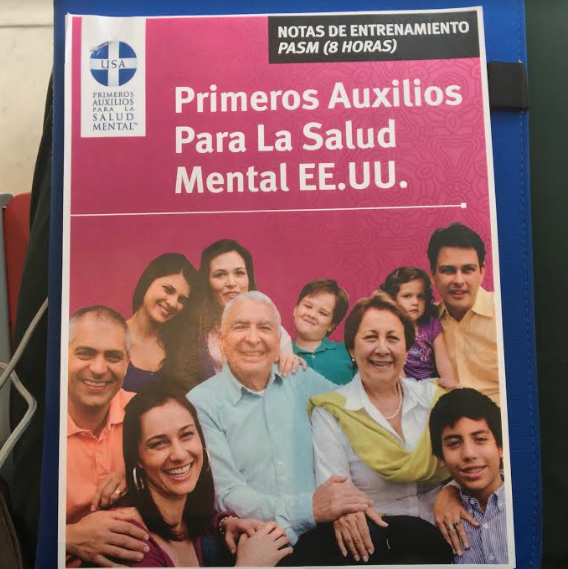



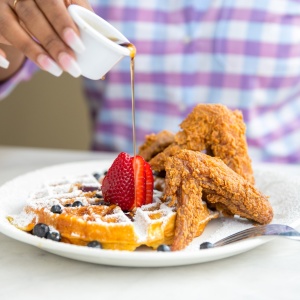








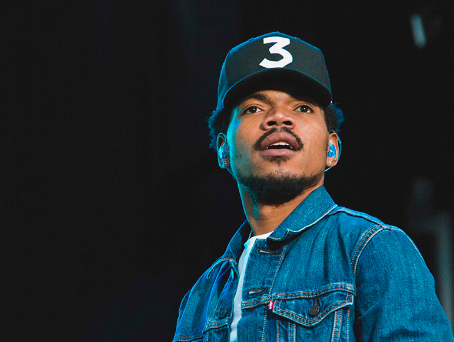













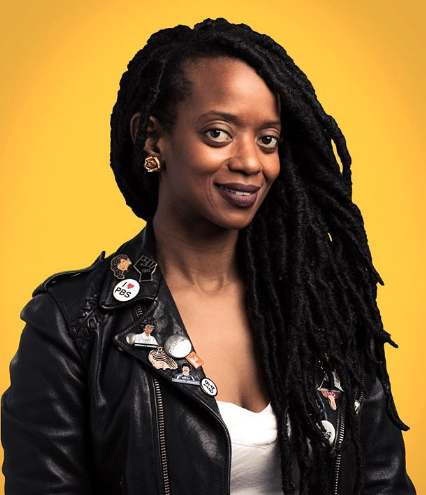

















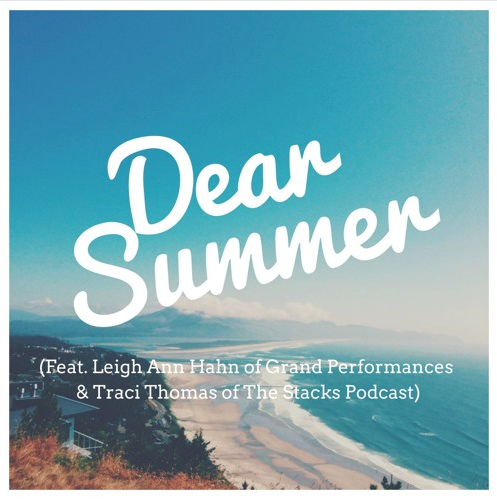





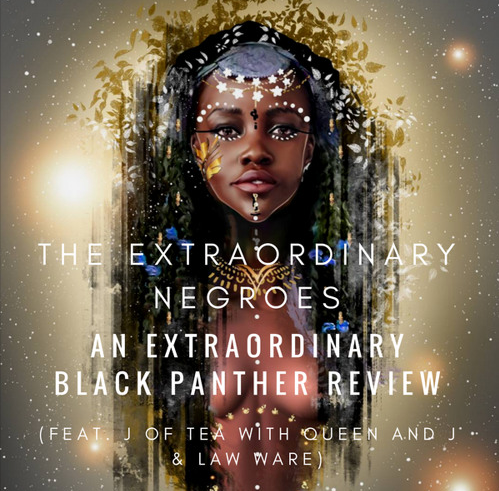



Mental Health First Aid teaches ye to recognize signs and symptoms of someone developing a mental health or substance use disorder and a five-step action plan to help.